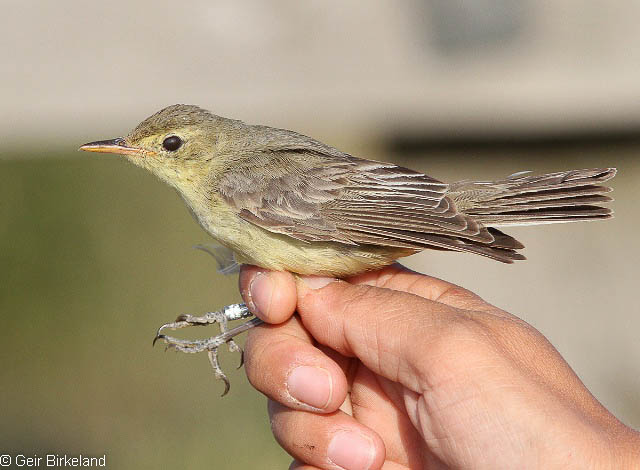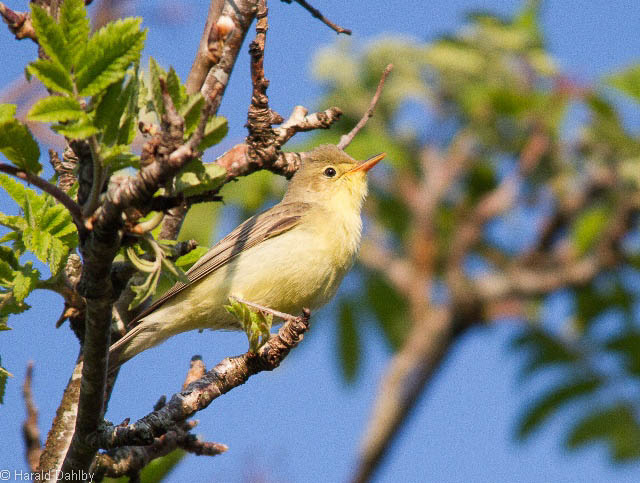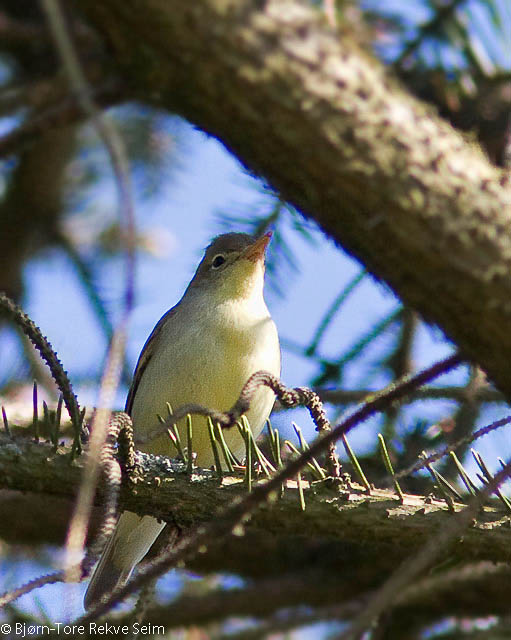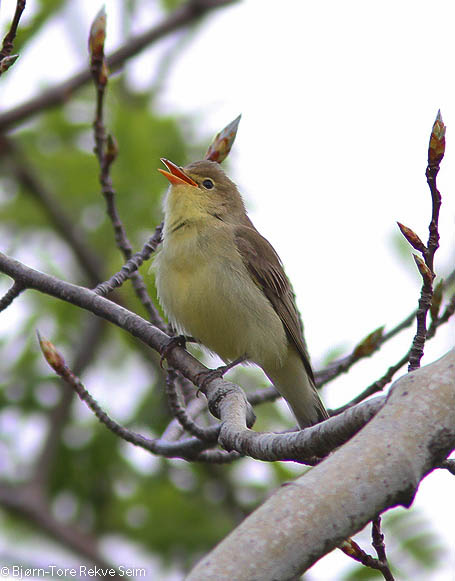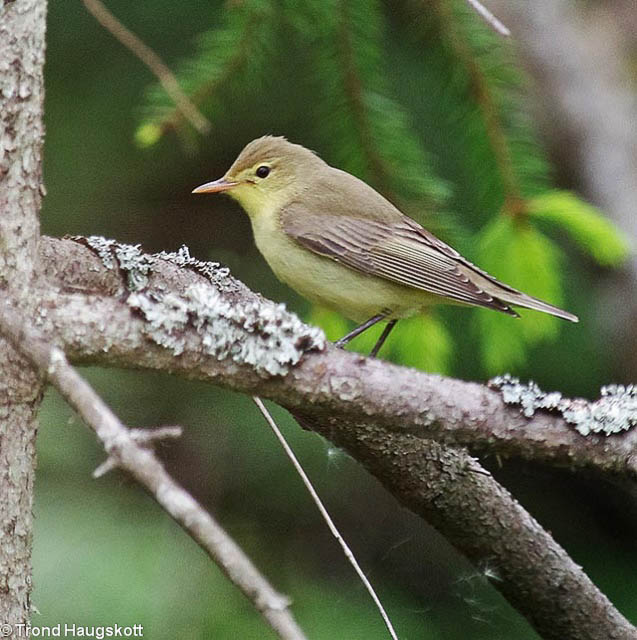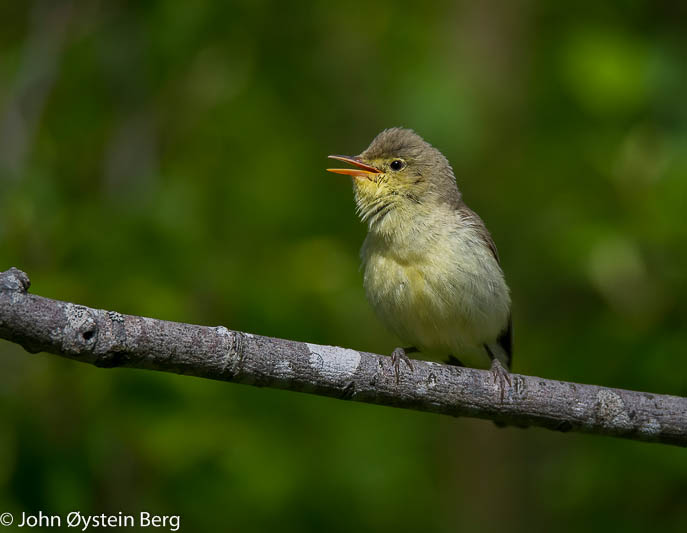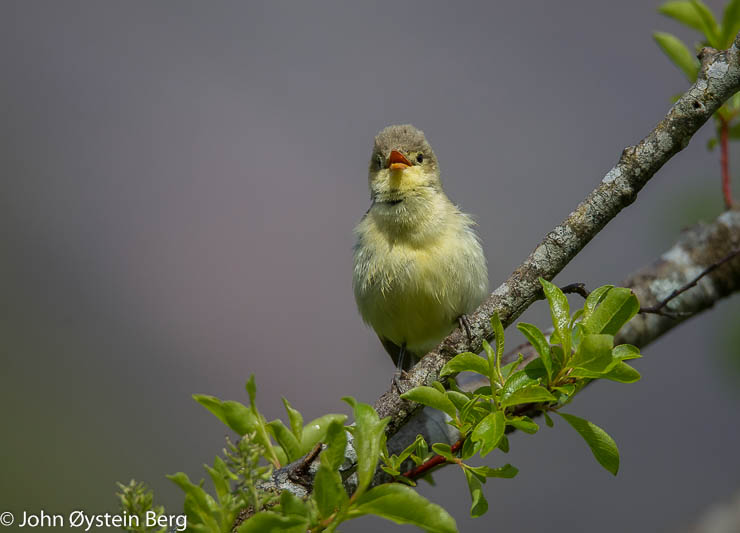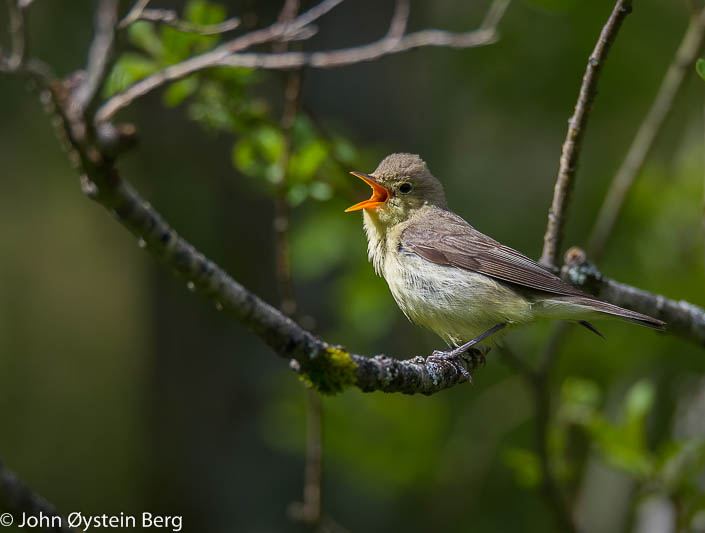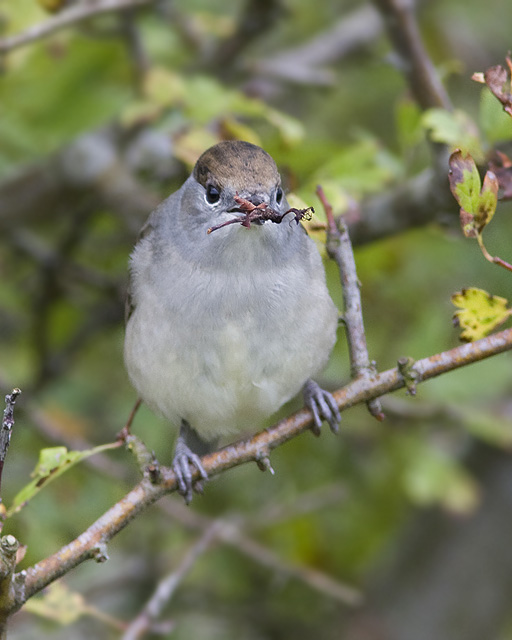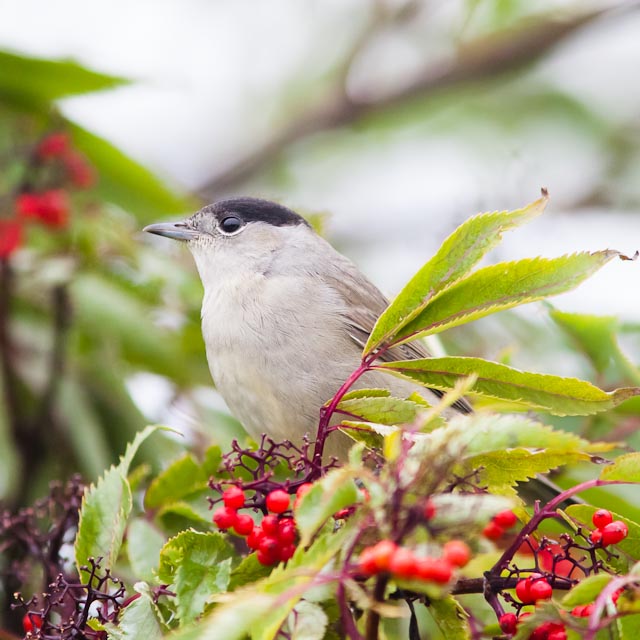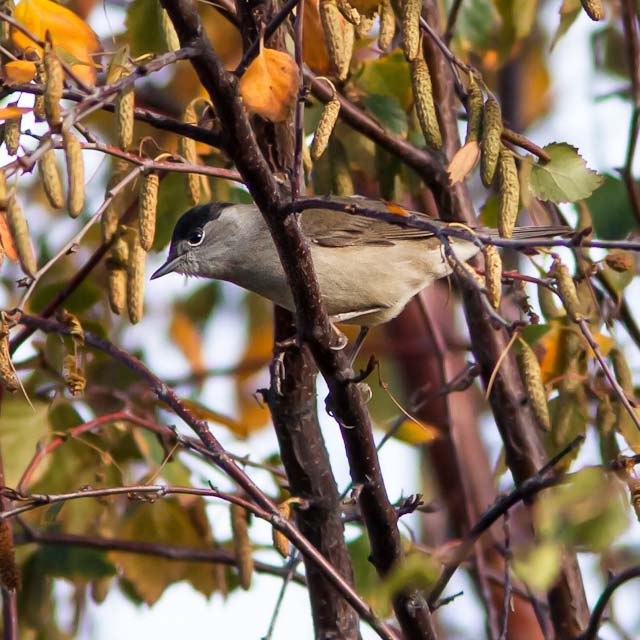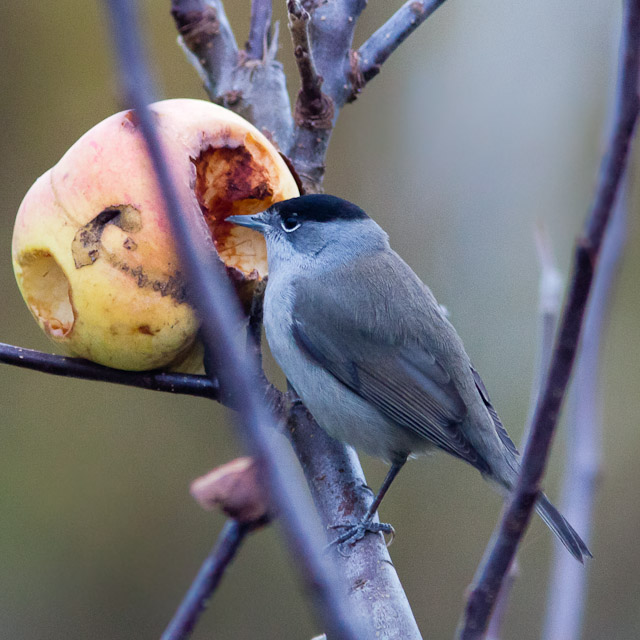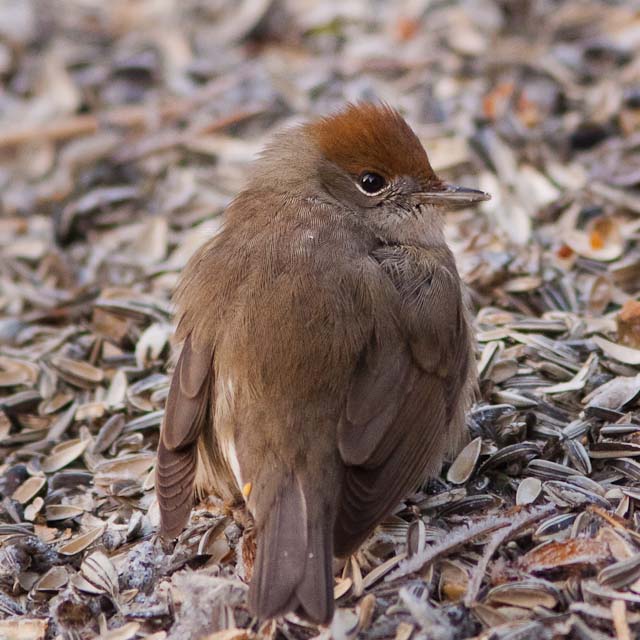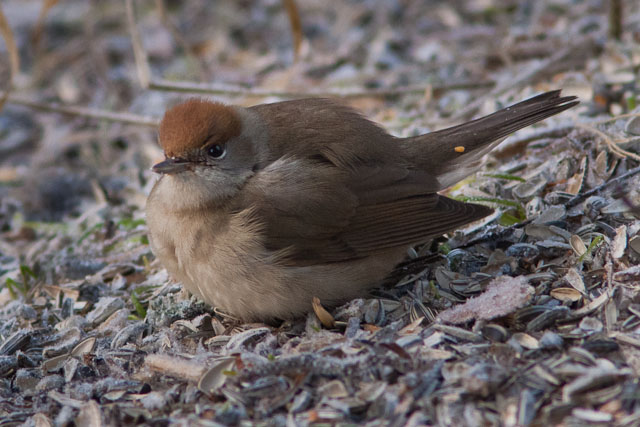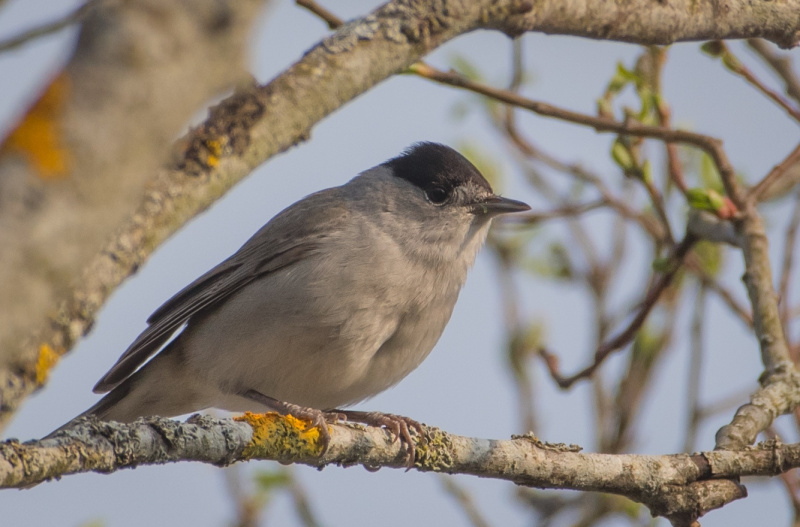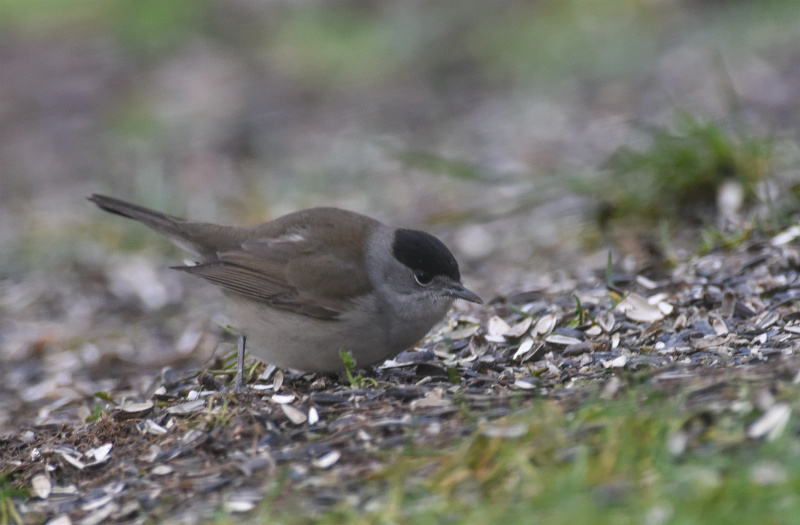Icterine Warbler (Hippolais icterina)
Blackcap (Sylvia atricapilla)
Green upperparts and yellow underparts. Sides of bill yellowish, legs slate grey. Short yellow supercilium which connects to yellow lore. Long wings and relatively short tail. The flat crown and long bill gives it a different head profile from Sylvia warblers. Often raises crown feathers. Very similar to Melodious Warbler, but differs from this in pale wing-panel and longer wings. Folded wings reaches tip of under tail coverts, and primary projection is as long as tertials. Juveniles paler than adults, with whitish supercilium. The pale wing-panel extends to fringes of greater coverts in addition to secondaries. Alert and agile bird. Usually hidden in foliage, also when singing.
Sound:Contact call distinct. A hard, trisyllabic "che-che-fink" , or "che-che-weet" with upward inflection. Song very virtuous and varied. Most similar to Marsh Warbler, but timbre and attack harder and more powerful. Tempo varied with many pauses, but includes longer, and more flowing sequences than Marsh Warbler. Song frequently interrupted by characteristic, nasal, high-pitched squeaks unlike Marsh Warbler. Master of mimicry. Imitations are often repeated several times before changing to melodious motifs or more "noisy" phrases.
Song:
Distribution:
Xeno-canto: map
Ecology:Birdlife ecology
Links:
Observation.org Latest observations
Image search Flickr NB! May give other species
CCLarge and robust warbler with plain plumage, except for the characteristic cap (black in males, rufous in females and juveniles). Upperparts greyish brown and underparts pale grey. Vent white. No white in tail, as opposed to all other black-capped Sylvias in the region. Easily confused with Garden Warbler if the cap is not seen.
Sound:Song pleasing, varied and loud. Sometimes very similar to Garden Warbler. A typical phrase starts with soft, staccato chattering and mimicry, which after a few seconds changes to a much louder, pure and resonant stream of notes for about 3-5 seconds. No fixed motif, but may end phrases with recurring notes. Often deviates from the characteristic type of song, and identification from song alone may be impossible. May sing first part of song for extended periods without ever reaching the characteristic ending. Alarm call a hard "check", similar to Lesser White-throat. Sometimes with an additional hoarse and nasal "cherrrr".
Alarm call, song:
Distribution:
Wikipedia: map (se also Xeno-canto below)
Ecology:Birdlife ecology
Links:
Observation.org Latest observations
Image search Flickr NB! May give other species
CC
 English
English Albanian
Albanian
 Armenian
Armenian
 Bulgarian
Bulgarian
 Catalan
Catalan
 Croatian
Croatian
 Czech
Czech
 Danish
Danish
 Dutch
Dutch
 Finnish
Finnish
 French
French
 Georgian
Georgian
 German
German
 Greek
Greek
 Hungarian
Hungarian
 Italian
Italian
 Latvian
Latvian
 Lithuanian
Lithuanian
 Macedonian
Macedonian
 Norwegian
Norwegian
 Polish
Polish
 Portuguese
Portuguese
 Romanian
Romanian
 Russian
Russian
 Sami : Lule sami
Sami : Lule sami
 Sami : North sami
Sami : North sami
 Sami : South sami
Sami : South sami
 Scientific names
Scientific names
 Serbian
Serbian
 Spanish
Spanish
 Swedish
Swedish
 Ukrainian
Ukrainian

